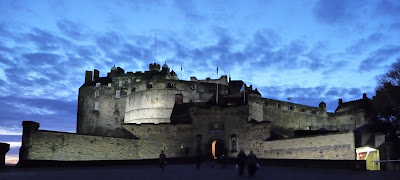And don't come back
This is the day that the LORD has made;
Let us rejoice and be glad in it!
- Psalm 118.24.
This time five years ago, I was receiving weekly doses of poison and daily radiation burns to my chest after being diagnosed with a rapidly growing malignant tumour just above my heart and invading my left bronchial tube. Today, I went into an oncologist's office and was told not to return, as five years of follow up is enough.Although it is still possible for me to experience relapse, the chances are that any cancer now found in my body is more likely to be a new growth than a renewal of the one that was well on its way to killing me in 2006/07. I am obviously delighted to reach this milestone and continue to receive each day as a gift. I did not deserve to live, did not earn my reprieve, did not qualify for healing through the quality of my faith. Faced with a very rare form of cancer (numerous specialists have given me the impression that I'm one in a million), medical science took its best (highly educated) guess as to treatment and it worked beyond all expectations.
And so praise God for life, for health, for wonderful support from family, friends and even strangers, for medical specialists and all the care I have received over five years from dozens of healthcare professionals both in Oz and the UK and for public healthcare that has meant my total out of pocket expenses have been AUD $0 + GBP £0 for treatments that probably cost tens of thousands (thanks fellow tax-payers!).
Yet the experience continues to have its shadows. Given that the first side-effect mentioned on the consent forms I signed for both chemotherapy and radiotherapy is that those treatments are themselves carcinogenic, cancer is still quite likely to be part of my future, as is reduced life-expectancy. I am also aware of the costs the illness and treatment have brought to my health in other ways; being poisoned and burned are not generally conducive to good health (I've always thought that Nietzsche's boast that whatever did not kill him could only make him stronger was one of his sillier ones).
And I am not the same man I was. Being gravely sick has reconfigured my emotional and spiritual life, not to mention shaping my academic interests. For much of this I am grateful (and this is undoubtedly the true referent of Nietzsche's comment), especially for the reminder of my own frail mortality and the liberating realisation that survival is not our highest priority. These are important lessons that I hope always to keep close to hand. Has the experience also made me more pessimistic about our future prospects? Given that being ill significantly overlapped with the period during which I began investigating ecological and resources predicaments in greater depth, it is hard to tell whether the chicken or the egg came first.
The significance of my reaching this milestone was brought home powerfully to me a day or two ago when I came across the story of Kristian Anderson, a Sydney Christian man in his 30s with a wife and young kids, and who died from cancer two days ago. Kristian recorded more than two years of his physical, emotional and spiritual journey since diagnosis on a blog called How the Light Gets In (H/t Andrew Paterson). I ran out of tissues while reading it. I never met him, but I thank God for his life and witness, even amidst great darkness, and I pray for his widow and little boys.
Life is a precious gift. Let us rejoice in each day we receive.


































